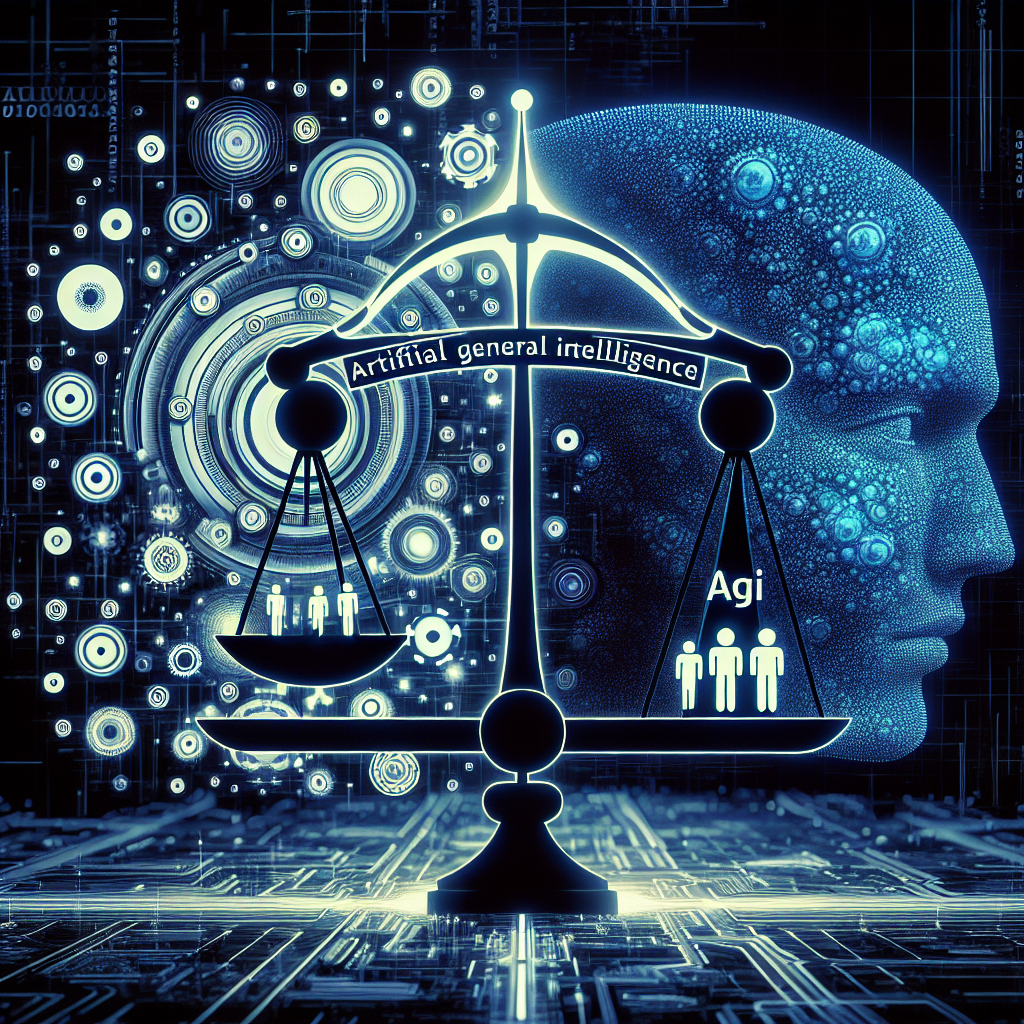The Impact of AGI on the Job Market: Will AI Take Over Human Jobs?
Artificial General Intelligence (AGI) is the next frontier in the field of artificial intelligence. Unlike narrow AI, which is designed for specific tasks, AGI aims to mimic human intelligence and abilities across a wide range of tasks. As AGI continues to advance, many are beginning to wonder about its impact on the job market. Will AI take over human jobs, leading to mass unemployment and economic upheaval? In this article, we will explore the potential impact of AGI on the job market and address common questions and concerns surrounding this issue.
The Rise of AGI
AGI has long been the holy grail of artificial intelligence research. While narrow AI systems have made significant strides in recent years, they are limited in scope and cannot perform tasks outside of their designated functions. AGI, on the other hand, has the potential to think, learn, and adapt like a human, making it capable of performing a wide variety of tasks with human-like efficiency.
The development of AGI has the potential to revolutionize industries across the board, from healthcare and finance to transportation and manufacturing. With the ability to perform complex cognitive tasks at superhuman speeds, AGI could streamline operations, reduce costs, and improve productivity in countless sectors. However, the widespread adoption of AGI also raises concerns about its impact on the job market.
The Impact of AGI on Jobs
One of the primary concerns surrounding AGI is its potential to automate jobs traditionally performed by humans. As AGI becomes more advanced, it could replace workers in a wide range of industries, from manual labor and customer service to data analysis and creative work. This has led to fears of mass unemployment and economic disruption as AI takes over human jobs at an unprecedented rate.
While it is true that AGI has the potential to automate many tasks currently performed by humans, it is important to remember that AI is not a one-size-fits-all solution. Not all jobs can be easily automated, and many tasks require the unique skills and abilities that humans possess. In many cases, AI is more likely to complement human workers rather than replace them entirely.
For example, in the healthcare industry, AGI could assist doctors in diagnosing and treating patients, allowing them to focus on more complex cases and providing better care overall. In manufacturing, AGI could streamline production processes and improve efficiency, creating new opportunities for human workers to specialize in areas that require creativity and problem-solving skills.
Ultimately, the impact of AGI on the job market will depend on how society chooses to integrate and regulate this technology. While automation may lead to job displacement in some industries, it could also create new opportunities and industries that did not exist before. It is up to policymakers, businesses, and workers to adapt to the changing landscape of AI and ensure that the benefits of AGI are shared equitably among all members of society.
FAQs
Q: Will AGI lead to mass unemployment?
A: While AGI has the potential to automate many tasks currently performed by humans, it is unlikely to lead to mass unemployment. AI is more likely to complement human workers rather than replace them entirely, creating new opportunities and industries in the process.
Q: What industries are most at risk of job displacement due to AGI?
A: Industries that rely heavily on routine tasks, such as manufacturing, transportation, and customer service, are most at risk of job displacement due to AGI. However, new opportunities and industries may emerge as a result of automation.
Q: How can workers prepare for the rise of AGI?
A: Workers can prepare for the rise of AGI by developing skills that are difficult to automate, such as creativity, problem-solving, and emotional intelligence. Lifelong learning and upskilling will be essential for adapting to the changing job market.
Q: What role should policymakers play in regulating AGI?
A: Policymakers should play a crucial role in regulating AGI to ensure that its benefits are shared equitably among all members of society. This may include implementing policies that promote job retraining, income support, and worker protections in the age of automation.
In conclusion, the rise of AGI has the potential to revolutionize industries and create new opportunities for workers across the board. While concerns about job displacement are valid, it is important to remember that AI is not a one-size-fits-all solution and that humans possess unique skills and abilities that cannot be easily replicated by machines. By adapting to the changing landscape of AI and ensuring that its benefits are shared equitably, we can harness the power of AGI to create a more efficient, productive, and inclusive society.

